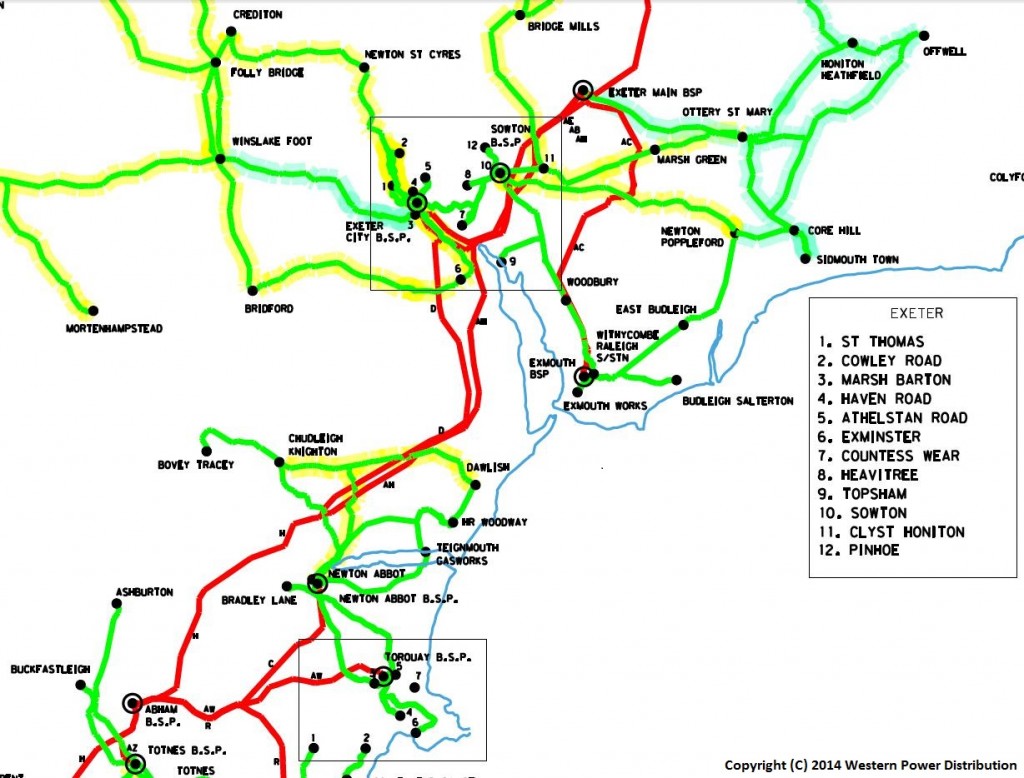August 28, 2014
Ashcombe Solar Farm Planning Deadline Extended
The original target date for the delegated decision on Solstice Renewables' application to construct a 7.5 MW solar PV park on the Ashcombe Estate was August 29th 2014. However I have just checked the Teignbridge District Council planning web site to see if my own objections to the proposal are visible yet. There I discovered a new letter from the applicant's agent which was posted yesterday, and part of which reads as follows:
Thank you once again for meeting us this afternoon; we hope you found it as constructive as we did.
We hereby agree to an extension of time until 19 September 2014.
It would therefore seem that if you would like to comment further on these proposals there is still time to do so, although I would suggest not leaving it until the (revised) last minute like I did! My own objections incorporated my long standing arguments about the balancing act between food security and energy security here in the United Kingdom. In addition they now also include evidence concerning what seems to me to be the inevitable conclusion to the piecemeal addition of renewable generation to Western Power Distribution's electricity distribution network here in South West England:
The green lines represent 33 kV high voltage cables. Those bordered in yellow, including the line from Dawlish to Chudleigh Knighton that Solstice Renewables would like to connect the Ashcombe solar "farm" to, are already subject to "Voltage Constraint". Those bordered in blue are already subject to "Thermal Overload". In simple terms, most of the electricity grid in SW England is already "overloaded" by "intermittent" renewable energy generation. Getting slightly more technical the "capacity factor" of a power plant is the total amount of energy generated during a period of time divided by the amount of energy that would have been produced operating continuously at full capacity.
The latest UK government statistics reveal that in 2013 the average capacity factor for solar PV in the UK was 10.3%, which effectively means that the local grid infrastructure needs to be overspecified by a factor of 9.7 times in order to accommodate the peak power generated by the proposed solar farm, compared to the average power it might produce in practice. By way of comparison the capacity factor of "onshore wind" generation is 28.9%. Better still are "anaerobic digestion" at 60.2% and "plant biomass" at 65.5%. The obvious question, or so it seems to me at least, is why not do rather more of the last two and rather less of the first two down here on Devon's green and pleasant agricultural land?
I also noted that the recently "adopted" Teignbridge Local Plan for 2013-2033 explicitly states that:
The target in Policy S7 is based on carbon emissions rather than on renewable energy generation, as this is the key issue leading to global climate change.
which strikes me as most definitely a step in the right direction. Quoting my own most recent missive to Teignbridge District Council, and conjecturing whether things like "NegaWatts" or "NegaTonnes" enter into their carbon calculations:
Perhaps an even better option when you’re trying to reduce carbon dioxide emissions is to recall that as plants grow they take in carbon dioxide and release oxygen. If you plough them straight back into the soil that carbon dioxide is released again fairly quickly. If however you convert straw and/or other plant "waste" into charcoal by “pyrolysing” it in the absence of oxygen, the resulting carbon (commonly referred to as "biochar") can be ploughed back into the land whilst any excess “syngas” generated during the process can be used as a renewable fuel, in much the same way as the "biogas" produced by an anaerobic digester. The carbon thus sequestered remains buried in the soil for hundreds if not thousands of years, and has the added benefit of greatly increasing the soil’s fertility. It also increases the “absorbency” of the soil for both water and nutrients. A win-win-win situation if ever there was one.
Filed under Renewables by

Comments on Ashcombe Solar Farm Planning Deadline Extended »
"The obvious question, or so it seems to me at least, is why not do rather more of the last two and rather less of the first two down here on Devon's green and pleasant agricultural land?" – excellent question. The obvious answer will be something like that: we live at a time when money, nepotism, lies, egoism and lots of other -isms count more than truth, and there is a vast ignorance of science.
"There is a vast ignorance of science". Particularly amongst politicians? Another one of my hobby horses! Quoting John Adams with implied approval:
https://econnexus.org.uk/cop17-saves-face-as-canada-ditches-kyoto/